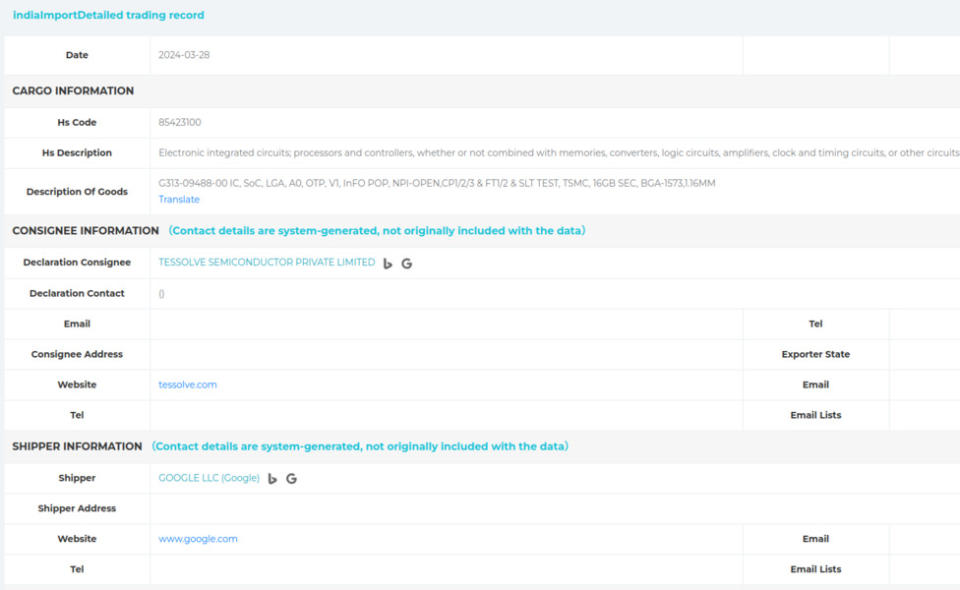The Pixel 9 isn't here yet, but this crucial detail gives away the Pixel 10

What you need to know
Google Pixel 10 series is likely to be powered by Tensor chips made by TSMC and not Samsung.
New obtained database information by Android Authority seemingly confirms the Tensor G5 (Laguna codenamed) chipset manufacturers.
Additionally, the Pixel 10 series could finally feature 16GB of RAM as well.
While the Pixel 9 is the next anticipated series from Google, new information already gives exciting details about the successor Pixel 10 series, specifically the chipset that will be powering those models.
It was rumored that Google is ditching Samsung for its in-house developed Tensor G5 chip, which likely powers the Pixel 10 series. However, new findings from Android Authority indicate that TSMC will be producing the upcoming Tensor G5 chip and not Samsung.

The publication obtained publicly available trade databases that add evidence to the earlier predicted rumors. The databases indicate the companies that ordered goods—Google (as Shipper) and Tessolve Semiconductor (as Consignee) are mentioned—and the description of the goods gives us away some additional details.
The description broken down by the publication reveals the Google part number, chip's code name "laguna (LGA)," goods' type, packing type, manufacturer, and the number of tests the mentioned chipset has passed. TSMC is evidently mentioned as the manufacturer, and the packaging technology is InFO POP, which is believed to be associated exclusively with TSMC.

As noted by the Android Authority report, the other parameters mentioned indicate that Google is still testing the new chip, and it is expected to be at least 16 months away from the official release, which aligns with the Pixel 10 series lineup. The database further mentions the RAM capacity of 16GB, which is an interesting detail to look forward to as it is a significant bump from the current model's RAM capacity.
For the uninitiated, the current Tensor chips, including the upcoming Tensor G4 powering the Pixel 9 series, are co-developed by Google and Samsung, which has been the case since the first Tensor chip in 2021.
Parting ways from Samsung suggests Google is gaining more control over its Tensor chips, similar to what Apple does with A and M series chips. It also means that the existing thermal problems on Tensor-powered Pixel chips might eventually be resolved and could lead to better overall performance, although we'll have to wait to see these chips in action to gauge the improvements.
